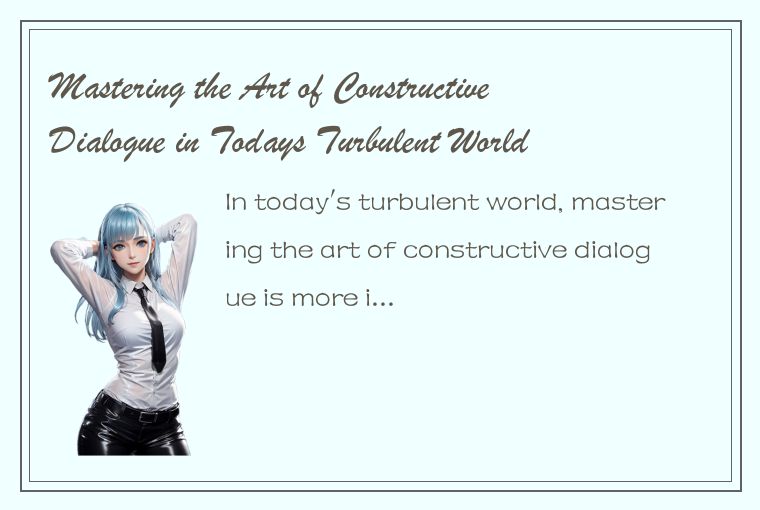In today's turbulent world, mastering the art of constructive dialogue is more important than ever. With so many competing voices and perspectives, it can be difficult to find common ground and work towards meaningful solutions. However, by learning to engage in productive dialogue with others, we can bridge divides, build relationships, and create positive change in the world around us.

Dialogue is more than just talking or exchanging words with others. It involves actively listening to others, being open to new ideas and perspectives, and seeking to understand other people's experiences and viewpoints. Through dialogue, we can work towards solutions that meet the needs and concerns of all parties involved.
One of the key elements of constructive dialogue is empathy. This means being able to put ourselves in other people's shoes and understand their perspectives, even if we don't agree with them. Empathy allows us to build trust and connection with others, and it can help us find common ground even in the most challenging of situations.
Another important aspect of constructive dialogue is active listening. This means giving our full attention to the person we are talking with, asking questions to clarify their points, and seeking to understand the underlying emotions and motivations behind their words. Active listening helps to build rapport and can lead to a deeper level of understanding between people.
In addition to empathy and active listening, constructive dialogue requires a willingness to be vulnerable and honest with others. This means being willing to share our own thoughts and experiences openly and honestly, even if they are uncomfortable or unpopular. By being vulnerable and honest, we can build trust and create space for others to do the same.
Constructive dialogue is also about recognizing and respecting differences. When engaging in dialogue, it's important to acknowledge that everyone has different backgrounds, beliefs, and experiences that shape their perspectives. By recognizing and respecting these differences, we can create a space where everyone feels heard and valued.
Finally, constructive dialogue requires a commitment to finding solutions that work for everyone. This means being willing to compromise, collaborate, and work towards solutions that meet the needs and concerns of all parties. By working towards common goals, we can create positive change and build stronger, more resilient communities.
In conclusion, mastering the art of constructive dialogue is essential in today's turbulent world. By practicing empathy, active listening, vulnerability, respect for differences, and a commitment to finding solutions that work for everyone, we can build stronger relationships and create positive change in our communities and beyond. So, let's engage in dialogue with others, seek to understand different perspectives, and work towards a brighter future for all.




 QQ客服专员
QQ客服专员 电话客服专员
电话客服专员